Abstract
Nitrate was formed from ammonium at pH 3.2 to 6.1 in suspensions of a naturally acid forest soil; the maximum rates of formation occurred at ca. pH 4 to 5. Nitrate was also formed from soil nitrogen in suspensions incubated at 50°C. Autotrophic nitrifying bacteria could not be isolated from this soil. Enrichment cultures produced nitrate in a medium with β-alanine if much soil was added to the medium, and nitrite but not nitrate was formed in the presence of small amounts of soil. Nitrification by these enrichments was abolished by eucaryotic but not procaryotic inhibitors. A strain of Absidia cylindrospora isolated from this soil was found to produce nitrate and nitrite in a medium with β-alanine at pH values ranging from 4.0 to 4.8. Nitrate production by A. cylindrospora required the presence of sterile soil. Free and bound hydroxylamine, hydroxamic acids, and primary aliphatic nitro compounds did not accumulate during the conversion of β-alanine to nitrite by the fungus. The organism also formed nitrite from ammonium in a medium containing acetate. We suggest that nitrification in this soil is a heterotrophic process catalyzed by acid-tolerant fungi and not by autotrophs or heterotrophs in nonacid microsites.
Full text
PDF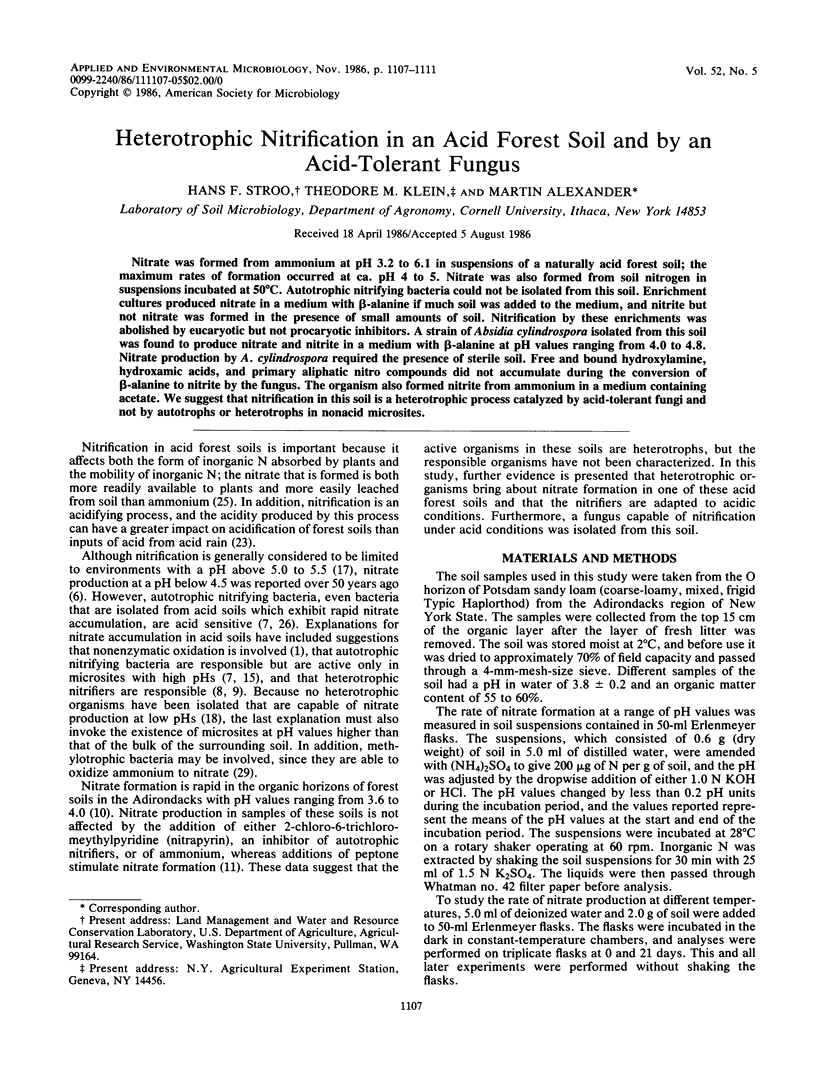
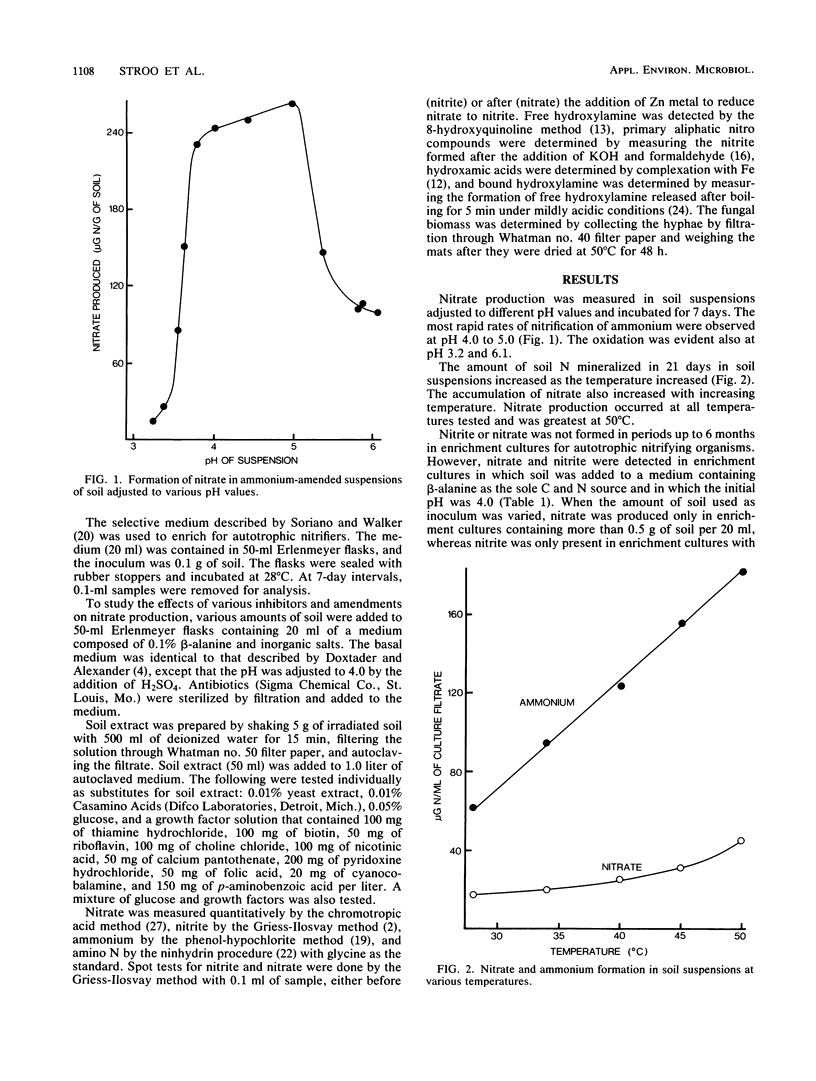
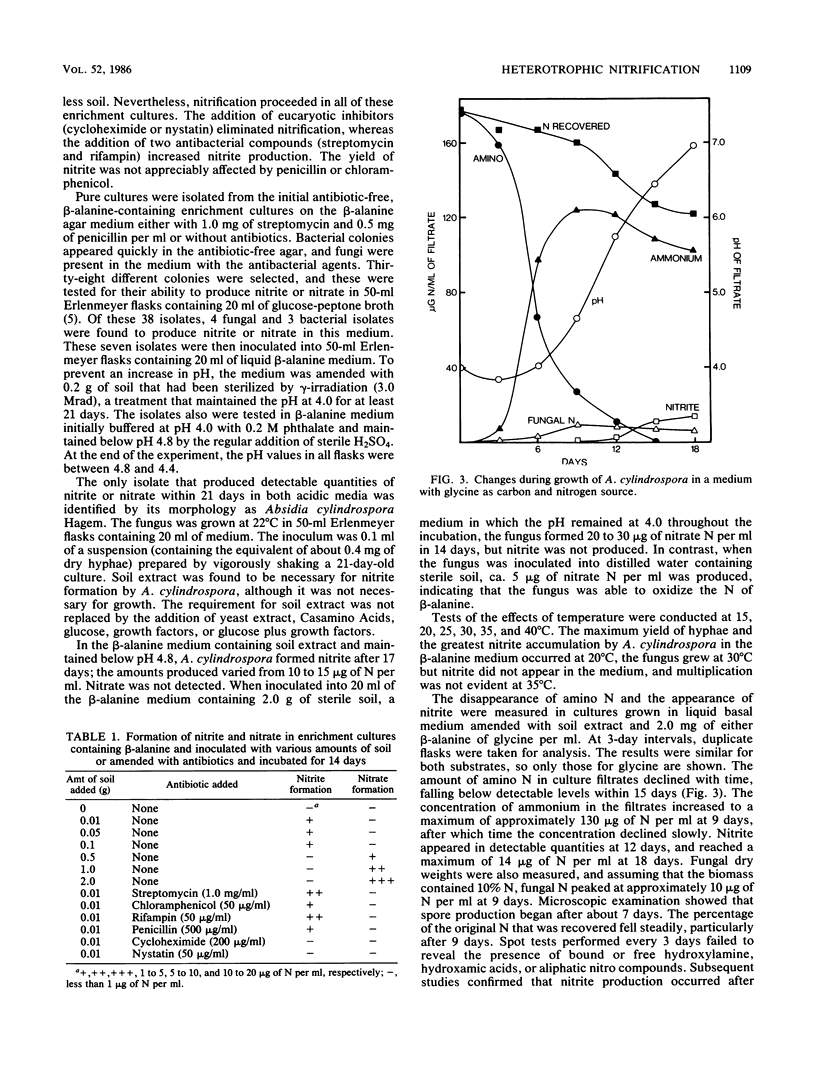
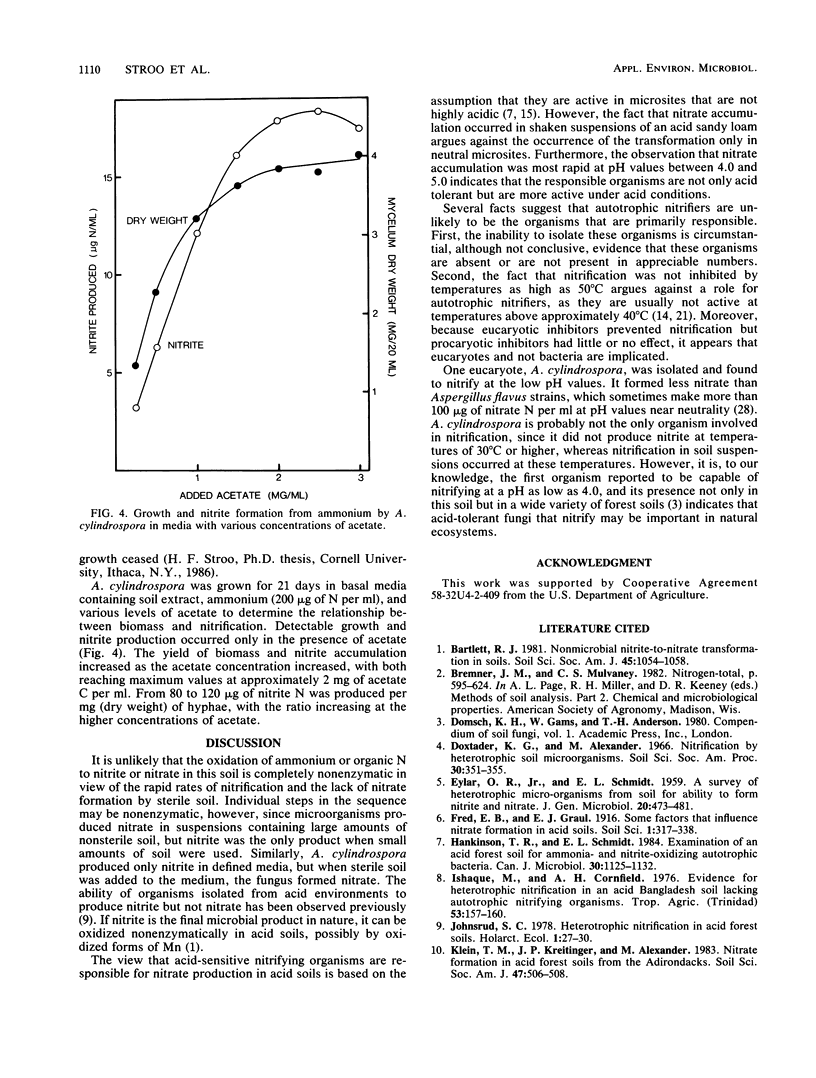
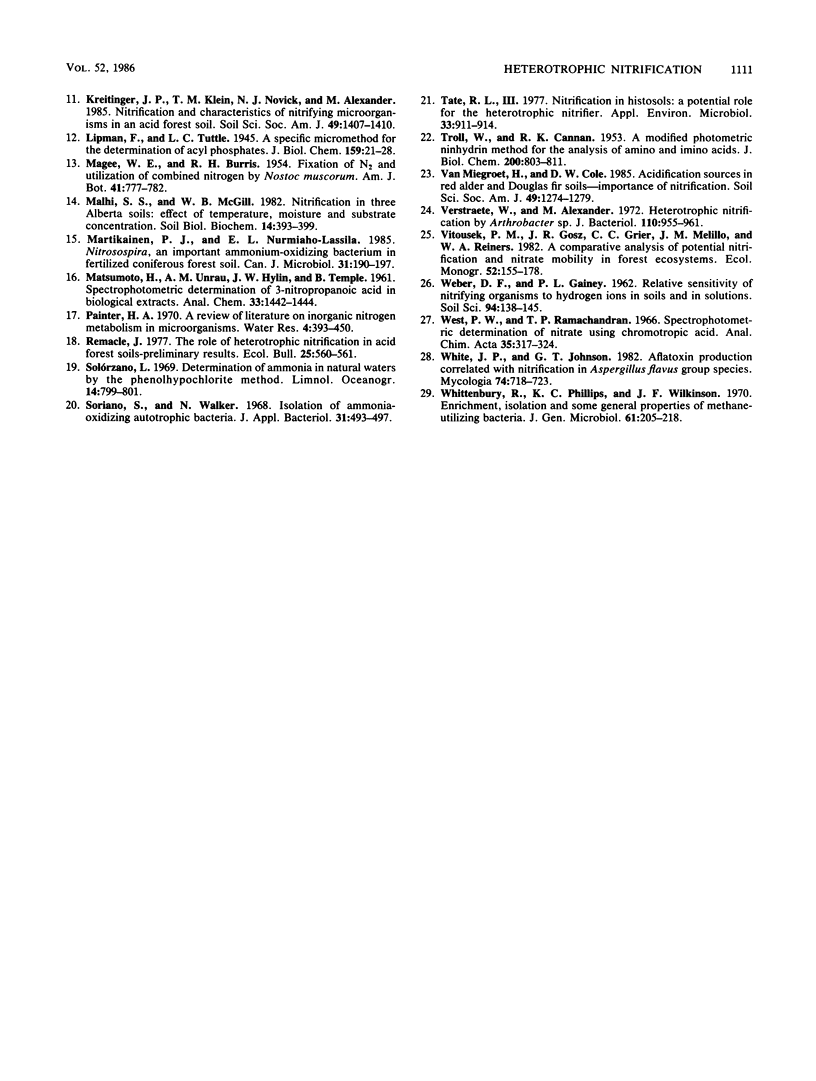
Selected References
These references are in PubMed. This may not be the complete list of references from this article.
- EYLAR O. R., Jr, SCHMIDT E. L. A survey of heterotrophic micro-organisms from soil for ability to form nitrite and nitrate. J Gen Microbiol. 1959 Jun;20(3):473–481. doi: 10.1099/00221287-20-3-473. [DOI] [PubMed] [Google Scholar]
- Soriano S., Walker N. Isolation of ammonia-oxidizing autotrophic bacteria. J Appl Bacteriol. 1968 Dec;31(4):493–497. doi: 10.1111/j.1365-2672.1968.tb00397.x. [DOI] [PubMed] [Google Scholar]
- TROLL W., CANNAN R. K. A modified photometric ninhydrin method for the analysis of amino and imino acids. J Biol Chem. 1953 Feb;200(2):803–811. [PubMed] [Google Scholar]
- Tate R. L., 3rd Nitrification in histosols: a potential role for the heterotrophic nitrifier. Appl Environ Microbiol. 1977 Apr;33(4):911–914. doi: 10.1128/aem.33.4.911-914.1977. [DOI] [PMC free article] [PubMed] [Google Scholar]
- Verstraete W., Alexander M. Heterotrophic nitrifiction by Arthrobacter sp. J Bacteriol. 1972 Jun;110(3):955–961. doi: 10.1128/jb.110.3.955-961.1972. [DOI] [PMC free article] [PubMed] [Google Scholar]
- Whittenbury R., Phillips K. C., Wilkinson J. F. Enrichment, isolation and some properties of methane-utilizing bacteria. J Gen Microbiol. 1970 May;61(2):205–218. doi: 10.1099/00221287-61-2-205. [DOI] [PubMed] [Google Scholar]


